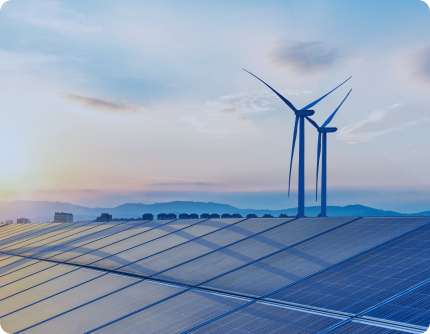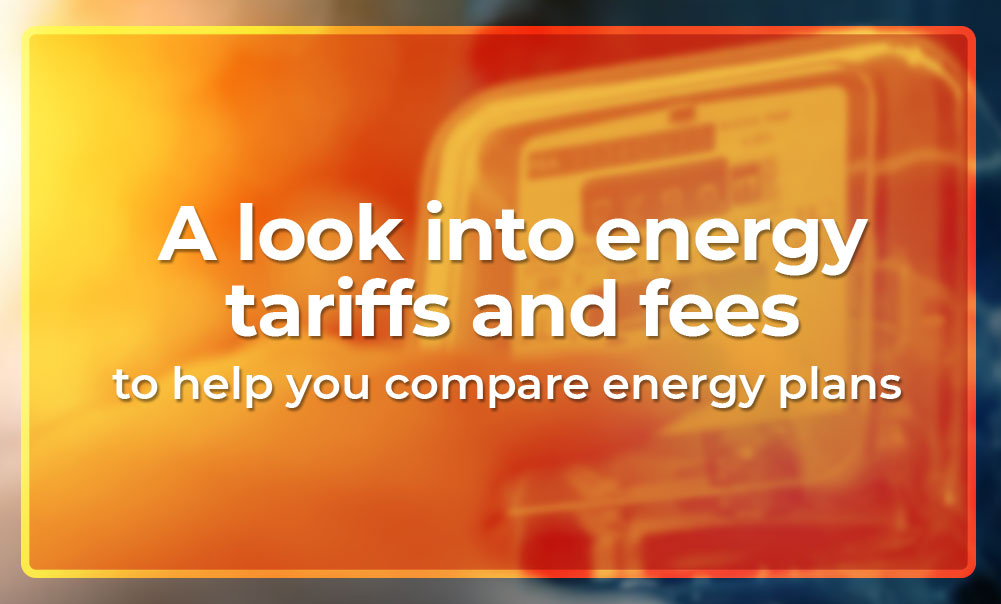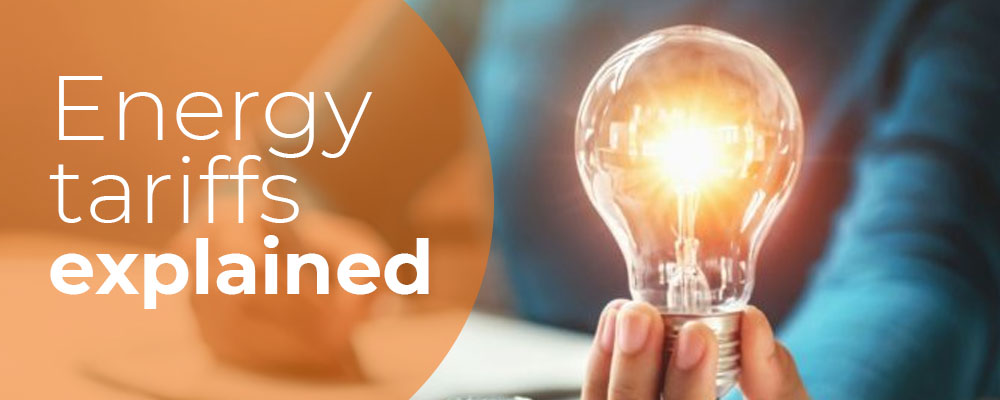A look into energy tariffs and fees to help you compare energy plans
Customers who are obtaining a new energy plan will enter into an agreement. An energy contract will lock in an arrangement with your chosen energy provider. It includes details around the supply of energy you’ll receive, how you’ll settle fees, and also which energy tariffs will apply to you.
Energy tariffs and fees are included in your energy service. They differ based on your meter type, which distribution area you live in, as well as who your energy provider is. But that’s not all there is to know about energy tariffs. In this article, you’ll get an overview of the charges that you’ll encounter in your energy bill.
Energy tariffs explained
The energy tariff is the amount charged for the energy you consume. The type of meter that you have and your energy provider are two of the factors that affect the charges you incur.
Tariffs are split into two: supply charges and usage charges.
Supply charge
Also known as a service to property charge or daily supply charge, these are fixed charges incurred for the daily delivery of electricity to you.
Usage charge
Also called a consumption charge, usage charges are based on your actual consumption. It’s the payment for every unit of energy you use.
Different variable charges that may reflect on your bill and there are factors that may affect this including:
• The amount of energy you use
• The time when you use certain appliances
• Use of separate meters
• Use of renewable energy
Are there changes in energy tariffs?
During a billing period, energy charges may change. Usually, your energy provider will inform you about it through a written notice and may come with your bill.
Other types of energy tariffs on your bill
• Controlled load — charges applied to energy usage for a dedicated appliance
• Block tariff — more common for natural gas and refers a tariff where the rate changes depending on usage amount
• Feed-in tariffs —based on your excess solar power
• Demand tariff — network charge that is based on maximum energy usage in a half an hour period
Your energy contracts
Apart from the energy tariffs on your bill, you should know that there are also fees and extra charges that may be included in energy contracts. These are listed separately on your bill by your energy provider and if you have questions about the charges, you are encouraged to contact them.
Some of the fees that often come with energy contracts include:
• Termination fee—the amount charged if the customer leaves a contract before the agreed period
• Payment processing fee—this is charged to customers who settle payments using a credit card
• Late payment fee—for payments made beyond the due date
• Special meter-read fee—this fee is applied to customers who request an extra or special meter reading
• Solar meter installation fee—this refers to charges for meter replacement in order to facilitate installation and testing of renewable energy.
• Reconnection fee—the amount charged when reconnecting electricity to your property
• Disconnection fee—the amount charged to customers who will leave their property and have to disconnect their electricity
ALSO READ: How to manage different types of electrical emergencies
Before entering into a contract with an energy provider, it helps to know the charges that you may encounter later on. Energy tariffs impact your bill and rates can change along the way. If you have questions about the fees found on your energy bill, it’s best to talk with your provider.
Are you planning to switch to a new energy provider in your area? Electricity Wizard can help you compare your options. Visit our website to start getting the service you deserve and earn savings from a provider that suits your needs best.









